I woke up in my gorgeous Spanish castle in Hondarribia and before going down for breakfast, walked around the castle and took some pictures of the Basque seaside. Remember, Hondarribia is on the west shore of the Bidasoa river, in Gipuzkoa, Basque Country, Spain.
Hondarribia – Basque Seaside Begins
After a great buffet breakfast (with the addition of fried eggs), Aitor gave us a small walking tour of the Hondarribia Old Town area, near where we were staying in the castle.
We again enjoyed the narrow streets and the unique shops, houses, and restaurants that lined the close streets. If you notice the roofs of the houses, you can notice that some are quite elaborate and ornate. This was yet another way of displaying wealth – the more money you had (particularly the renaissance era, as the town was founded in the 13th century but burned down almost completely in the late 15th century).
There was a puppet shop we randomly wandered in to, and we watched the puppet-makers/masters execute their craft.
We also found a number of unbelievably adorable doggies in the window (literally).
At the outside of the castle wall, we had fun with the statue of a Basque man holding a saw and wearing a Basque military hat. Aitor explained that this represented the common Basque man (the carpenter) expressing his resistance and the quintessential autonomy of the Basque region.
San Sebastian – Basque Seaside Continues
After this small tour, we made for more Basque seaside – via San Sebastian (aka Donostia in Basque and Capital city of Gipuzkoa), which I had unfortunately missed the first time I came to Bilbao two years for my entrepreneurship program. We’ve discovered over the past few days that the Basque country has a number of “capitals” – population size, historical, cuisine, tourist, religious, state capitals etc. It’s a seaside resort town of the rich and famous (reminded us a bit of Monte Carlo) and was really established as such when Queen Isabela II moved there to treat a skin condition with sea air, and moved her entire royal retinue there as well. Of course it had been around for hundreds of years before as an important strategic location on the Basque seaside between Spain and France, and had even been used the royal headquarters at some point in the 17th century.
The part we enjoyed the most was walking around the Basque seaside/San Sebastian promenade, and the view from up high (the amusement park on the mountain).
We also had an encounter with a local policeman. Leslie and I waited in the car as Aitor took Marv to exchange money at the Labor Credit Union in the bustling city center. We parked illegally on the side of the street right in front of the bank, hoping that no one would notice. After about 15 minutes, a police officer came along and told us that we couldn’t park there. By that time I was already sitting in the driver’s seat prepared for that to happen. But I wasn’t prepared to start the car, since I hadn’t yet driven it! The car apparently had a push button ignition as opposed to a turn-key, which wouldn’t start unless I had my foot on the brake. This took a few minutes to figure out, all the while hearing the policeman barking at me to move. I accidentally hit the wipers, the turn signal, the hazard lights, pretty much everything but what we needed (the gear, which was also awkwardly located on the steering wheel). Luckily I persisted and eventually pulled away without getting ticketed. Then we got stuck on the other side of the bridge in a series of one way streets that took us further and further away from where we needed to be. By the time we got back, Marv and Aitor were waiting for us, and they thought that we decided to abandon them! (the thought had crossed our minds to keep driving…) Thankfully the money exchange portion of this operation was a success (Aitor was a credit union member so the exchange rate was excellent and the fees were waived).
Lunch on the Basque Seaside
Onward to lunch in Zaraus on the Basque seaside, with a small stop on a hill overlooking the gorgeous coastline (with vineyards already beginning)! Today the weather had been on and off cloudy, foggy, and sprinkly – typical, as Aitor explained.
At this point we definitely felt like we were going from one meal to the next, constantly eating our way through the Basque seaside. This continued to hold true today, as we lunched at another celebrity chef restaurant in Zarauz – this is the only restaurant of Spanish cooking icon Karlos Arguiñano. It was right on the beach and the view, cuisine, and service was excellent. I ordered a salad with goat cheese, elegantly prepared in a wrapping of thinly sliced cucumbers and the goat cheese on the bottom (the greens densely packed inside). I also ate the Hake, which was prepared in a mushroom sauce (almost like a soup). For dessert, we shared a sampler platter that had a little bit of everything.
Getaria – EVEN MORE Basque Seaside
From Zarauz, we moved to Getaria to see the very interesting church that had a major street running under it. It also offers fabulous Basque seaside viewing.
I particularly enjoyed the stained glass and the Gothic architecture (the road running under it was novel, too).
Then we visited the archeological plate site on the Basque Seaside, located just on the outskirts of Getaria which was utterly phenomenal, and something we NEVER would have known about or found without Aitor. This is a site where the plate movements that pushed up the Pyrenees are clearly visible by the naked eye, above ground. Wow!
Our Hotel, Jesuskoa
We had already checked in to the hotel between lunch and Getaria, but we returned briefly before dinner. The hotel, Jesuskoa, was located nearby in Zumaia, and was located on a self-sustaining working farm. We were given two adjoining rooms as part of a apartment suite in the barn building adjacent to the main property. The main property itself also had a million nooks and crannies to explore, such as a library/reading room and a sun-room.
It also had a garden in the back and a stable with many animals (more tomorrow).
The Sanctuary of Loyola/Loiola
After a brief nap, we got back in the car and drove to see the Sanctuary of Loyola (in Loiola) before dinner. This is around the birthplace of St. Ignatius of Loyola, founder of the Society of Jesus. It started to pour rain as we were getting inside, so we lingered a little longer than usual and chatting with an old man who was the caretaker, inside. Sure, the church itself was spectacular, and so was the chandelier, but the best part was…
The mirror! Such a simple and obvious device allowed us to view corners of the ceiling in a whole new way. Why don’t all churches do this??
Dinner
When we left and got on the road for dinner, it started to hail for a full 15 minutes. Luckily the car didn’t get damaged. We ate a small (it looked nearly abandoned from the roadside) restaurant called Bedua inside what seemed to be an old warehouse on the river.
I ordered a bottle of local white wine, Txacoli, and it was excellent – light, crisp and refreshing.
We enjoyed a simple dinner of cooked garden vegetables (with bacon), soup, and of course bread…and another killer dessert.
We shut the place down talking about politics – Aitor said we were becoming more Basque every day.
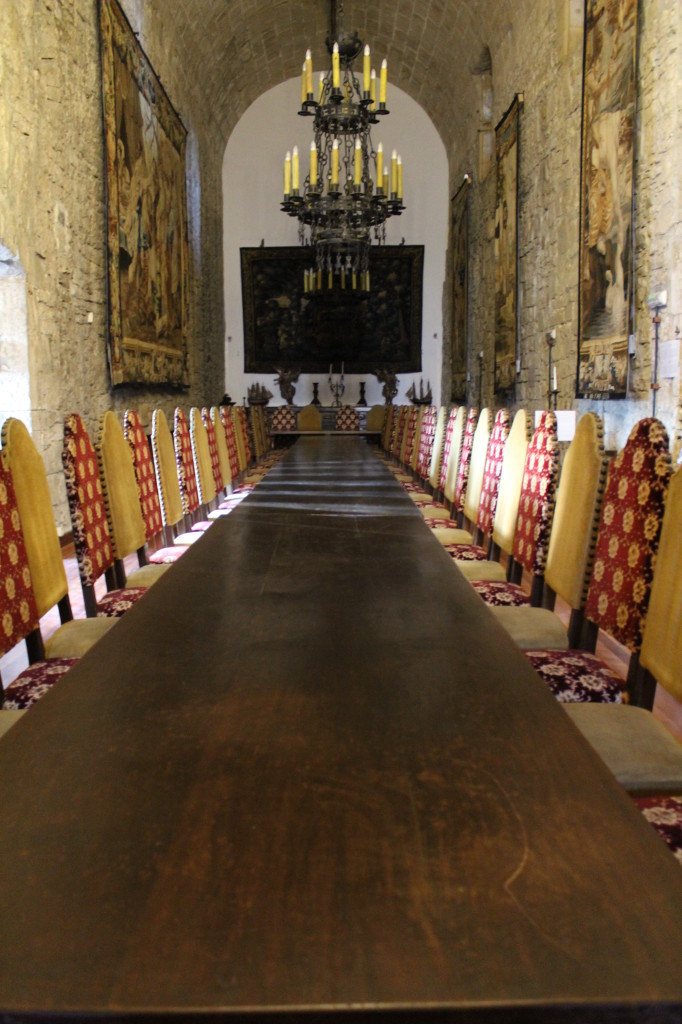
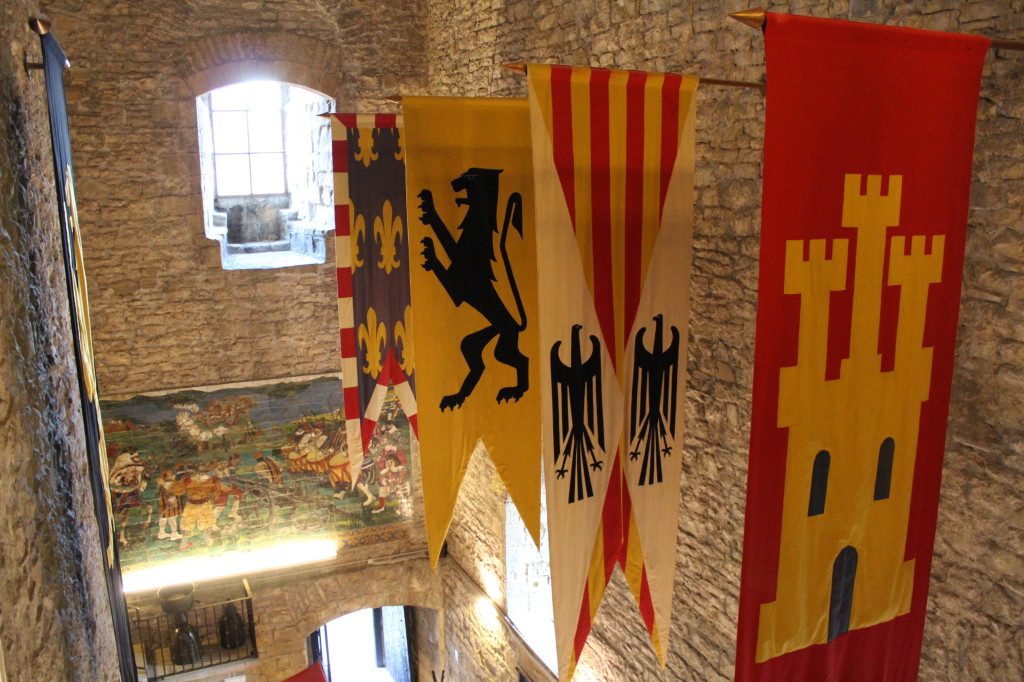
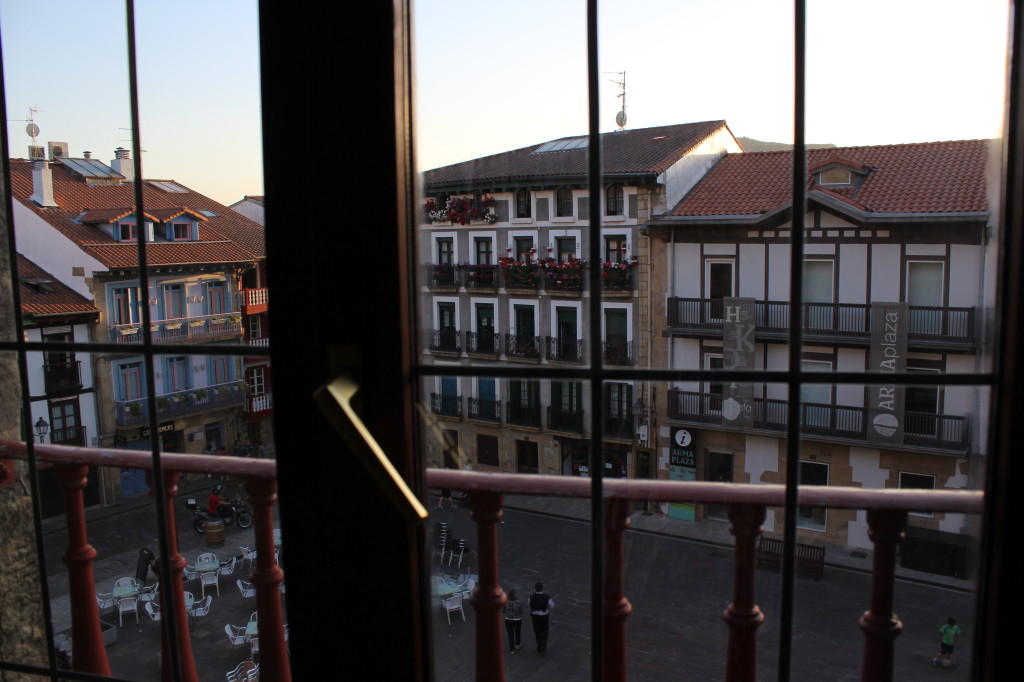
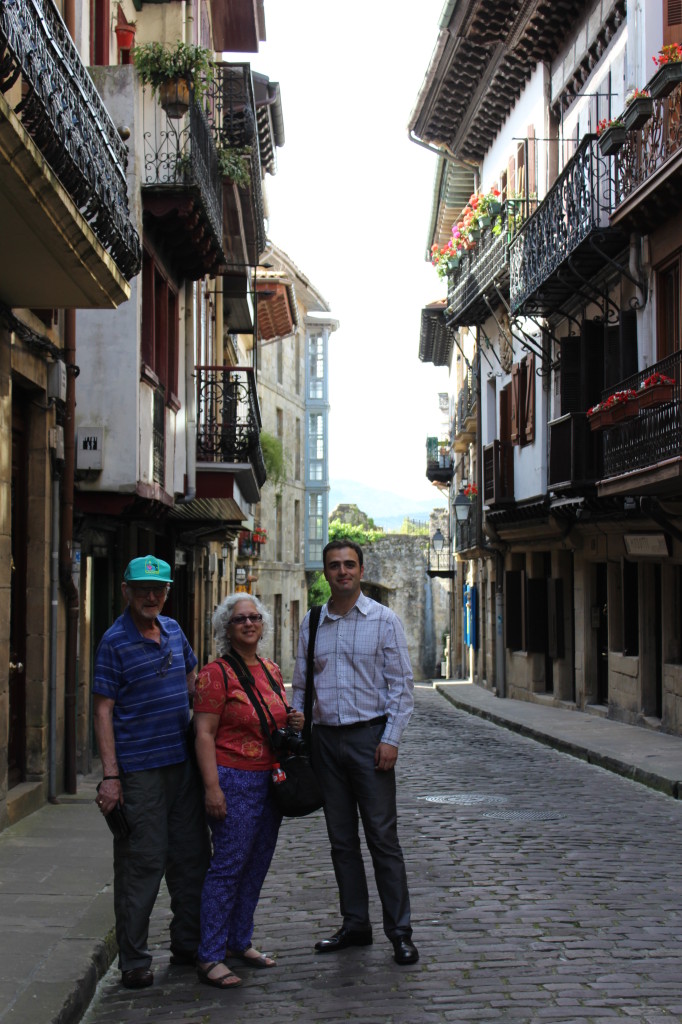
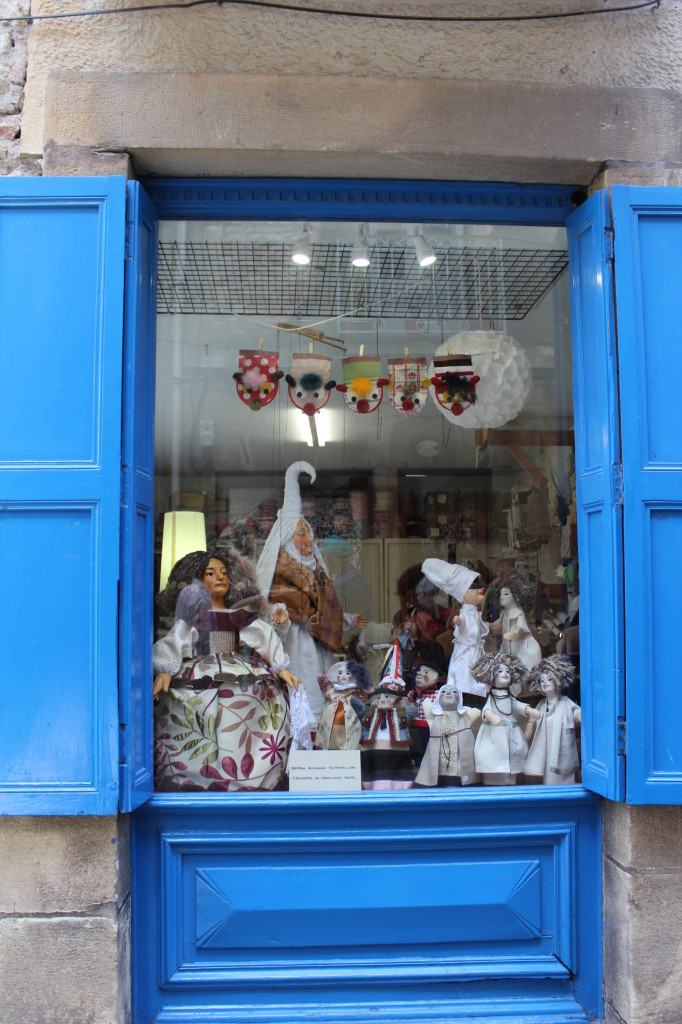
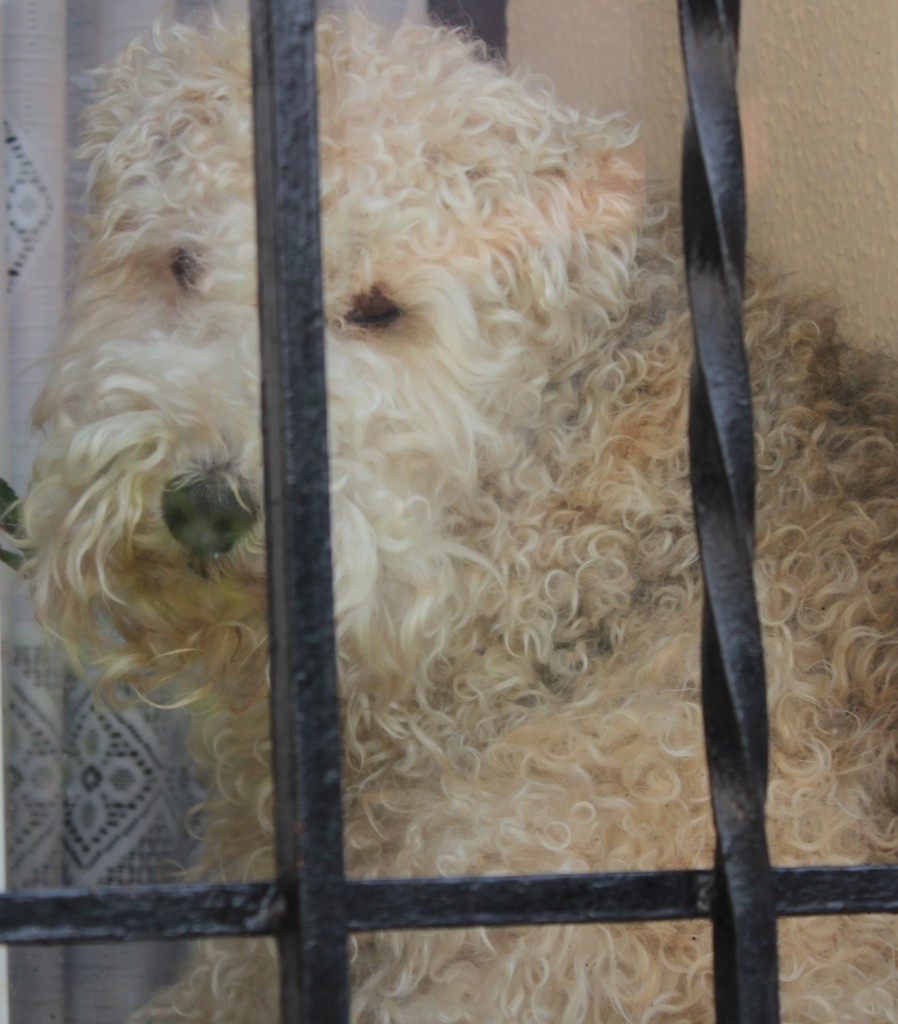
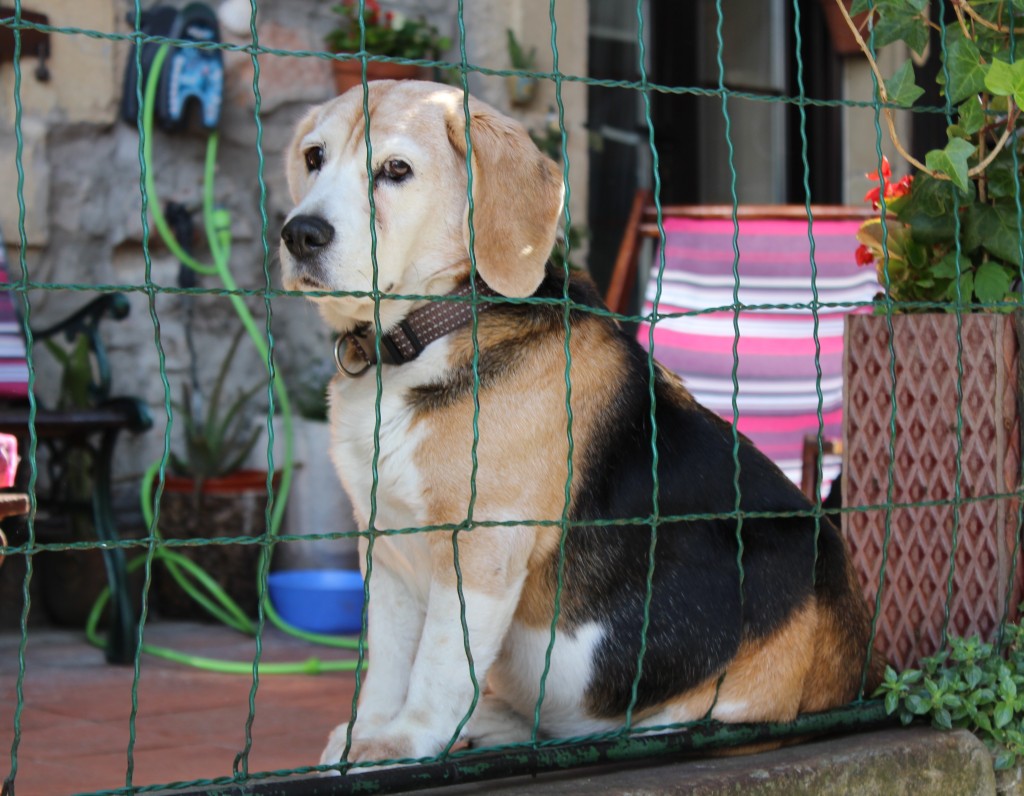
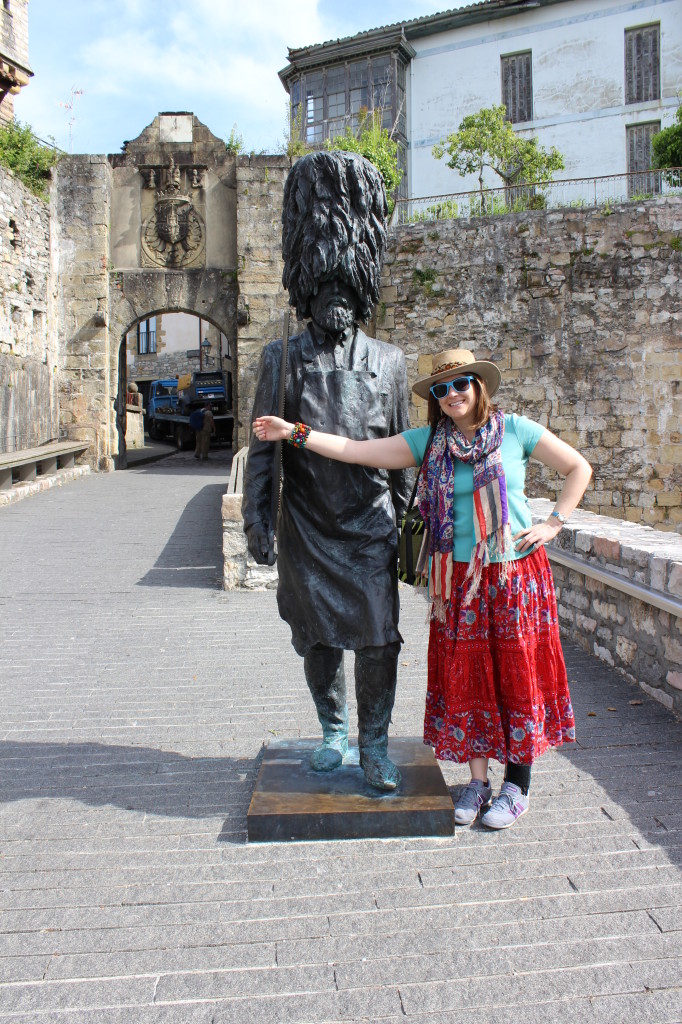
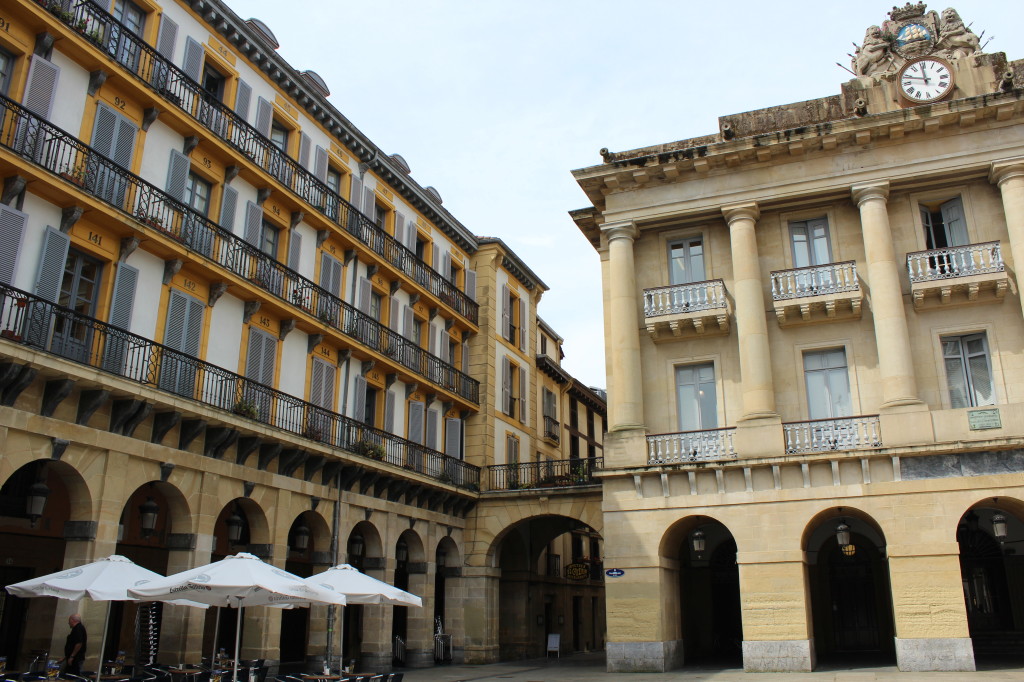
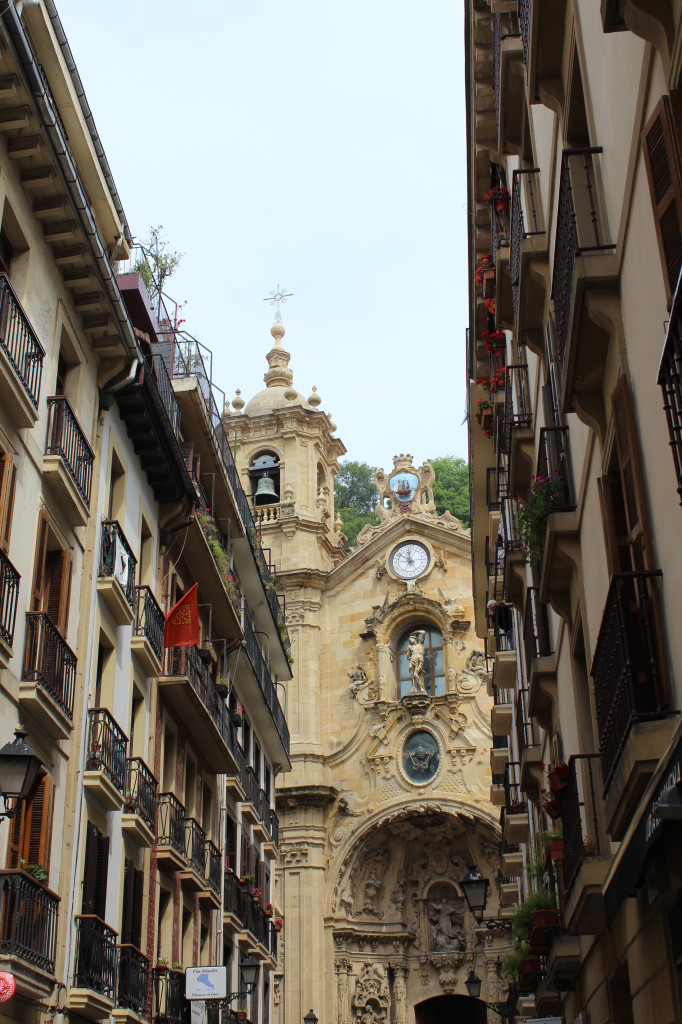
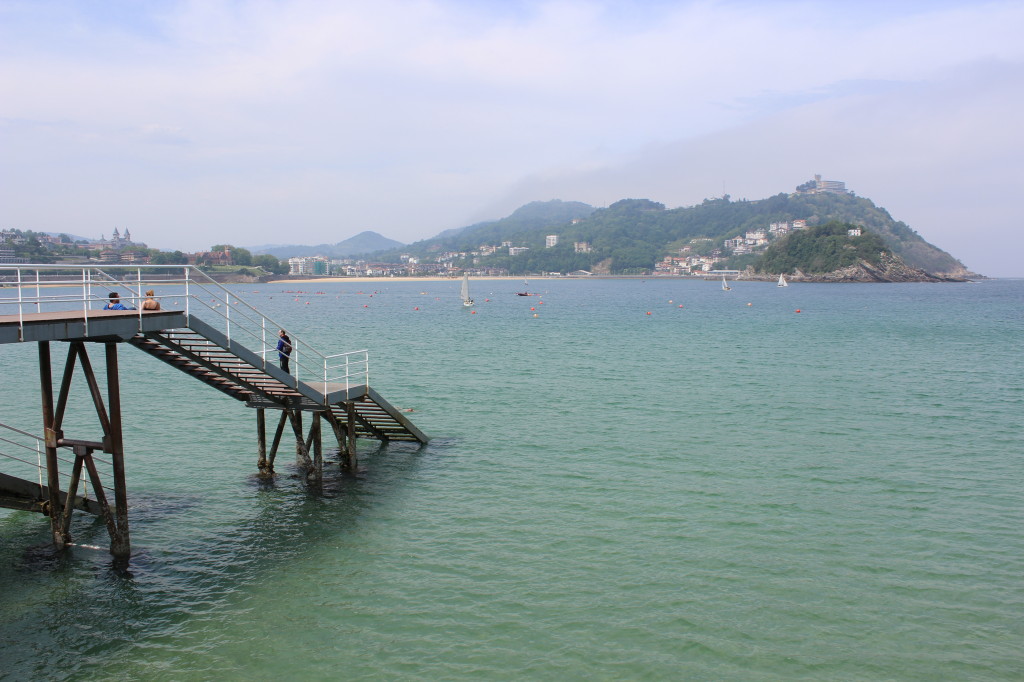
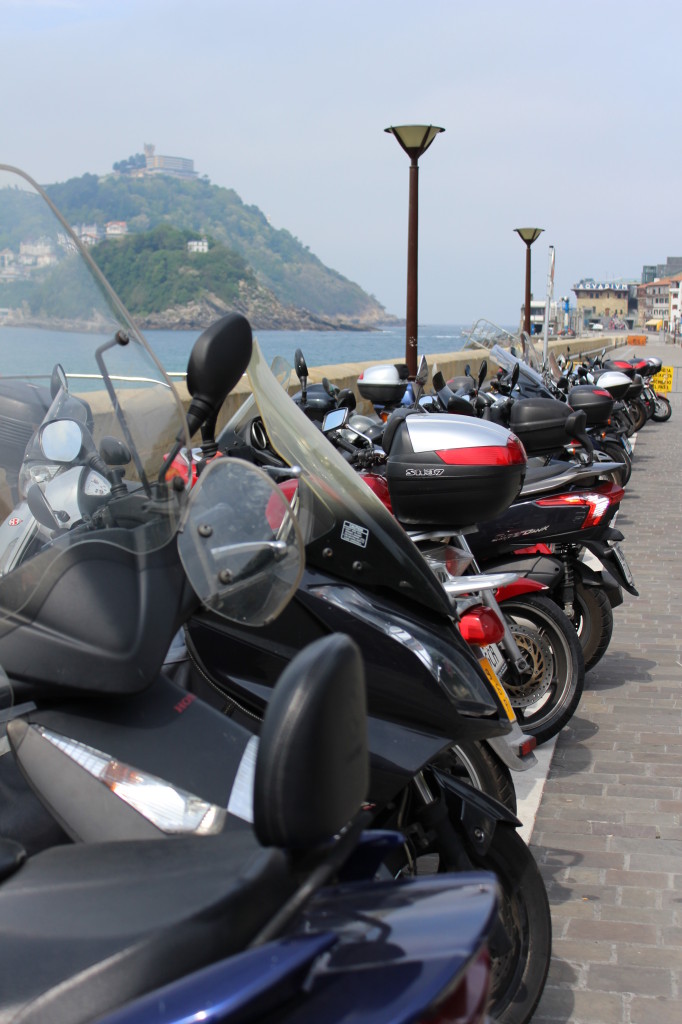
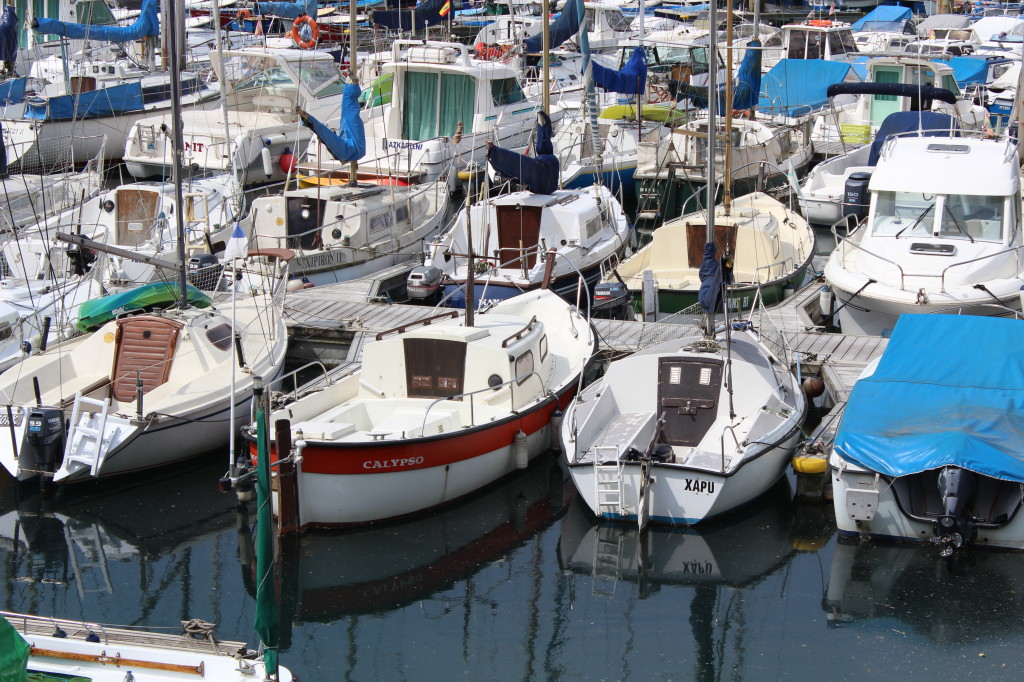
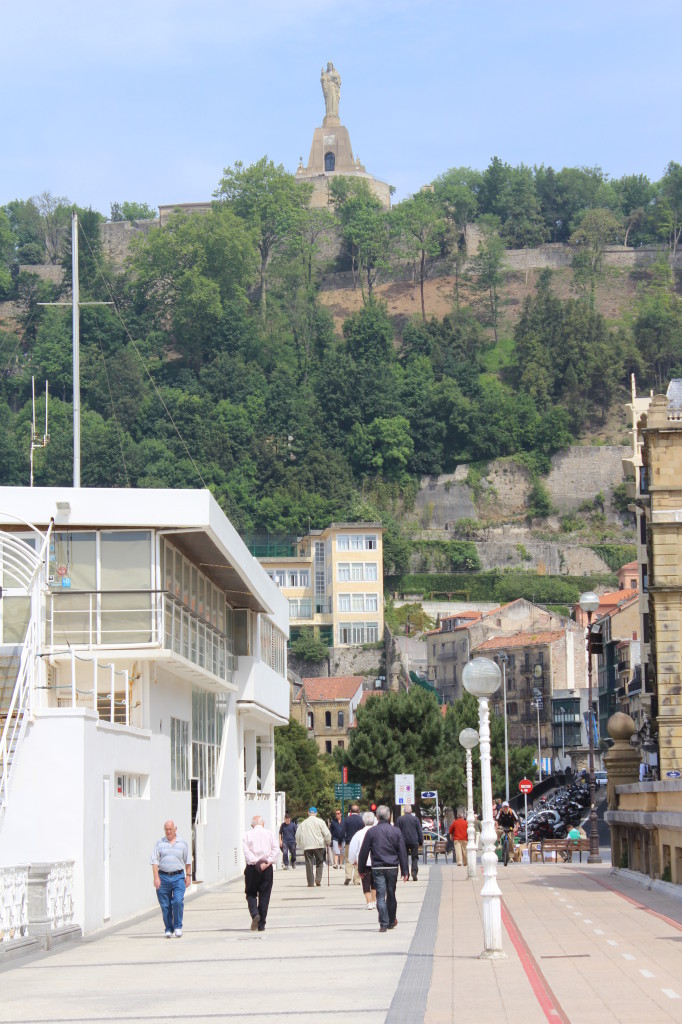
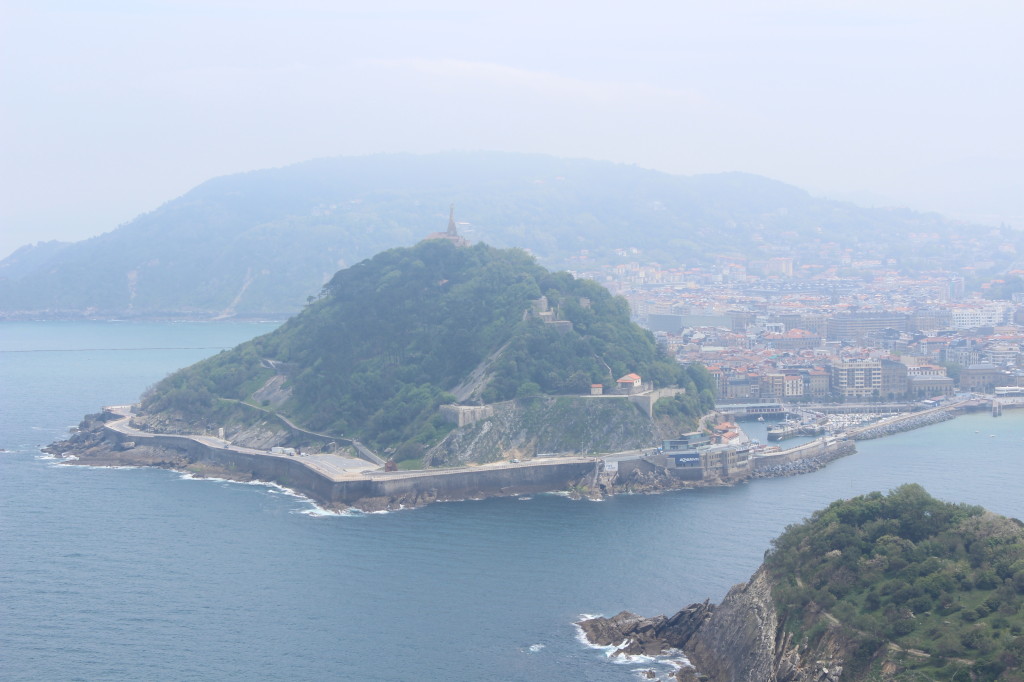
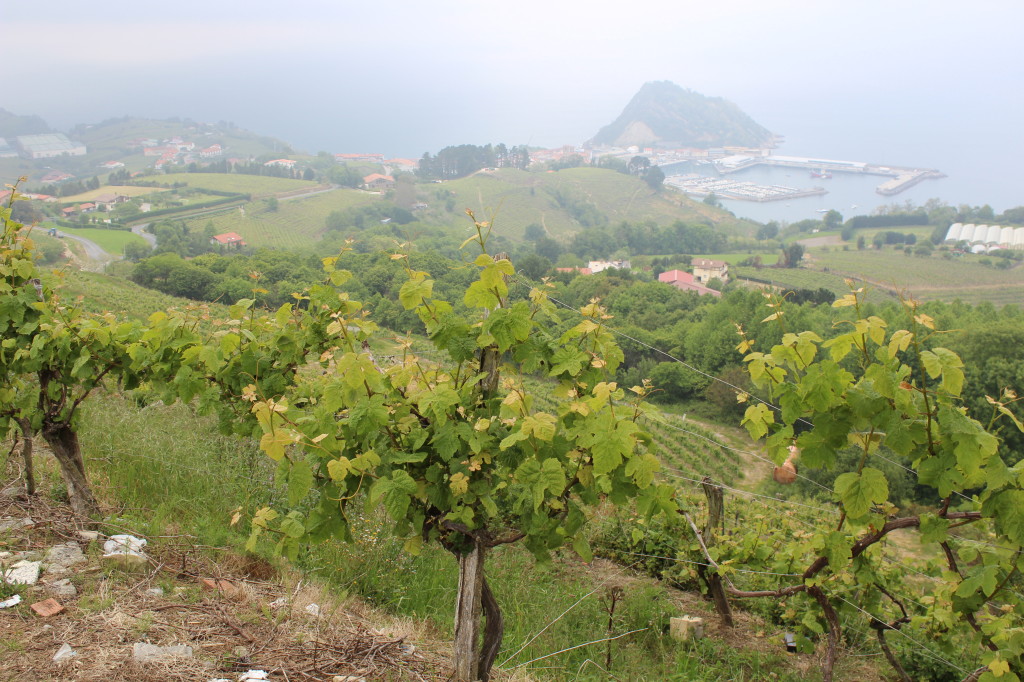
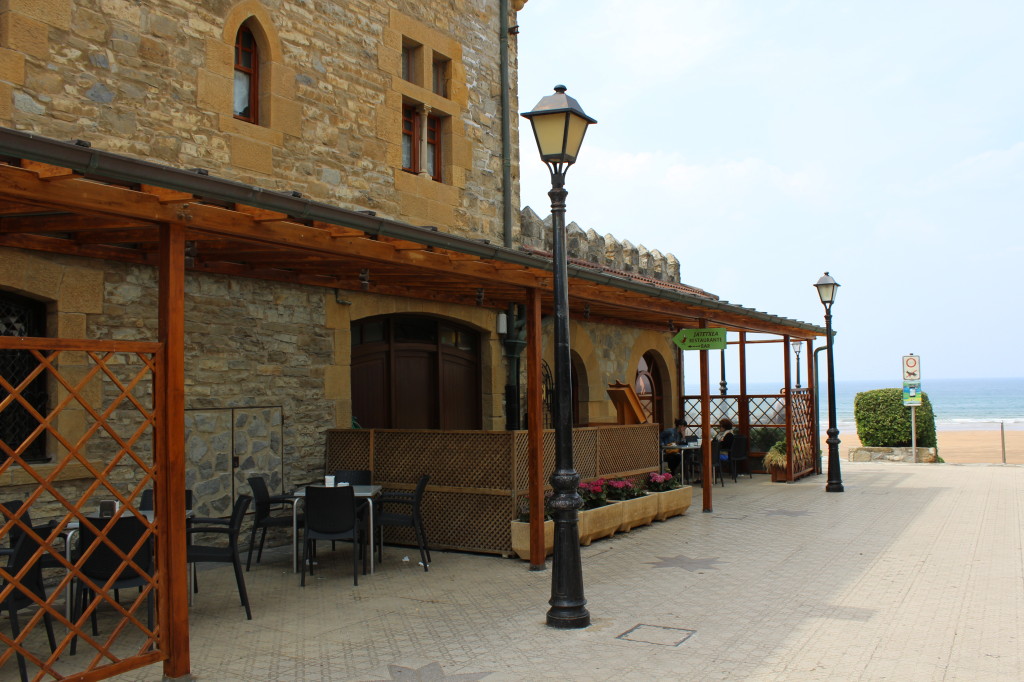
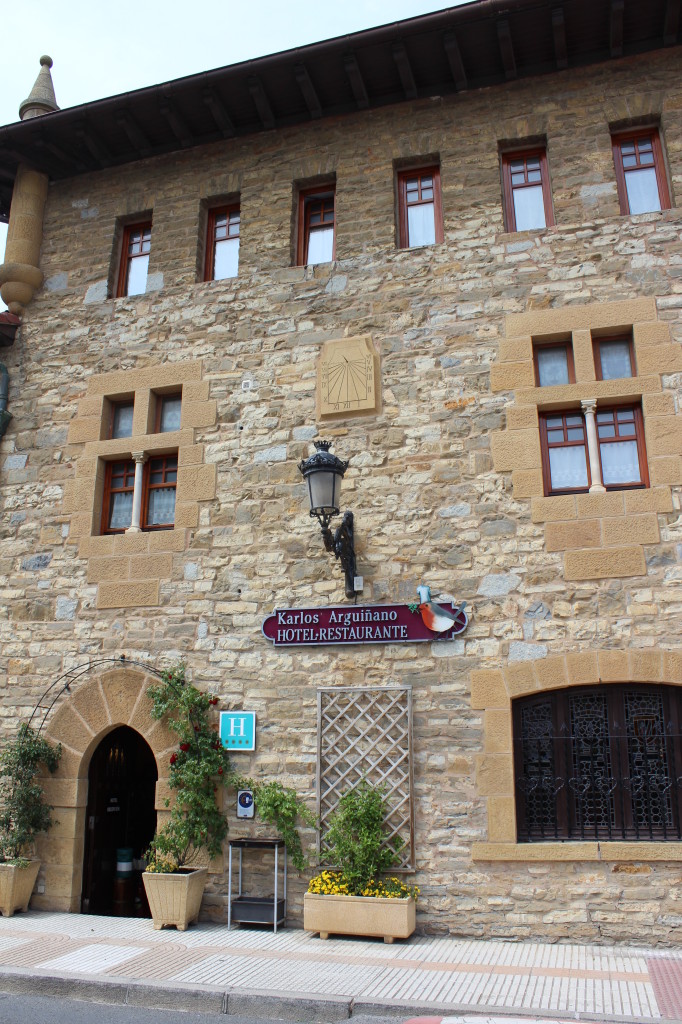
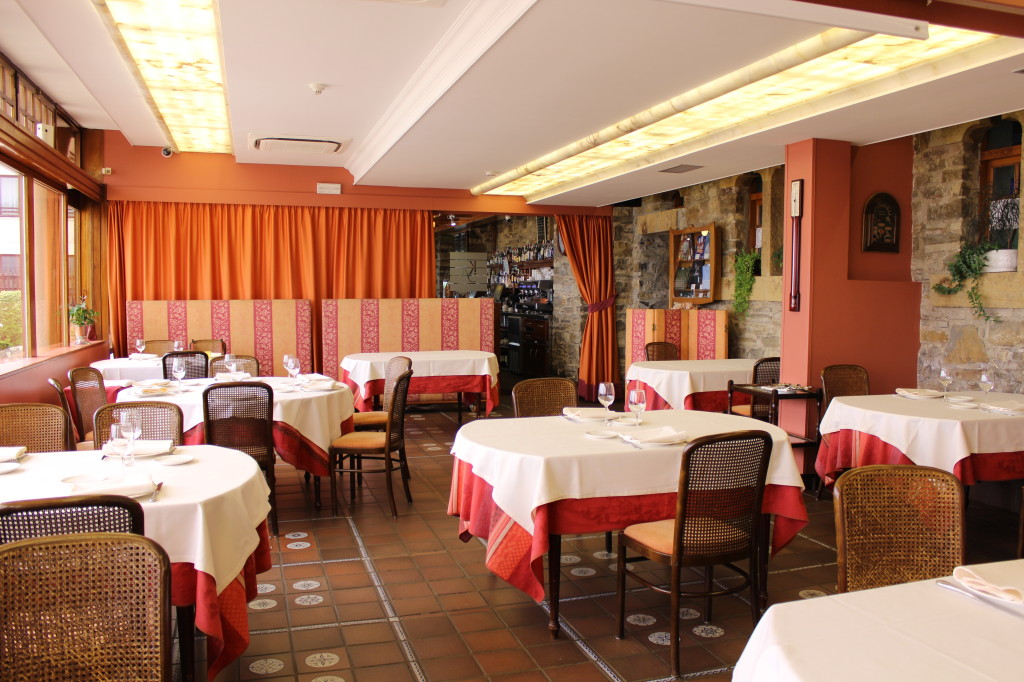
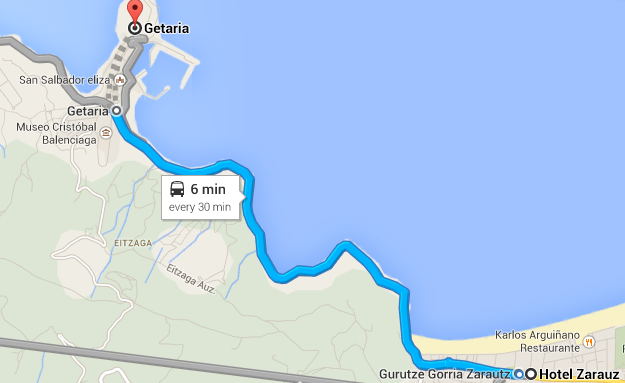
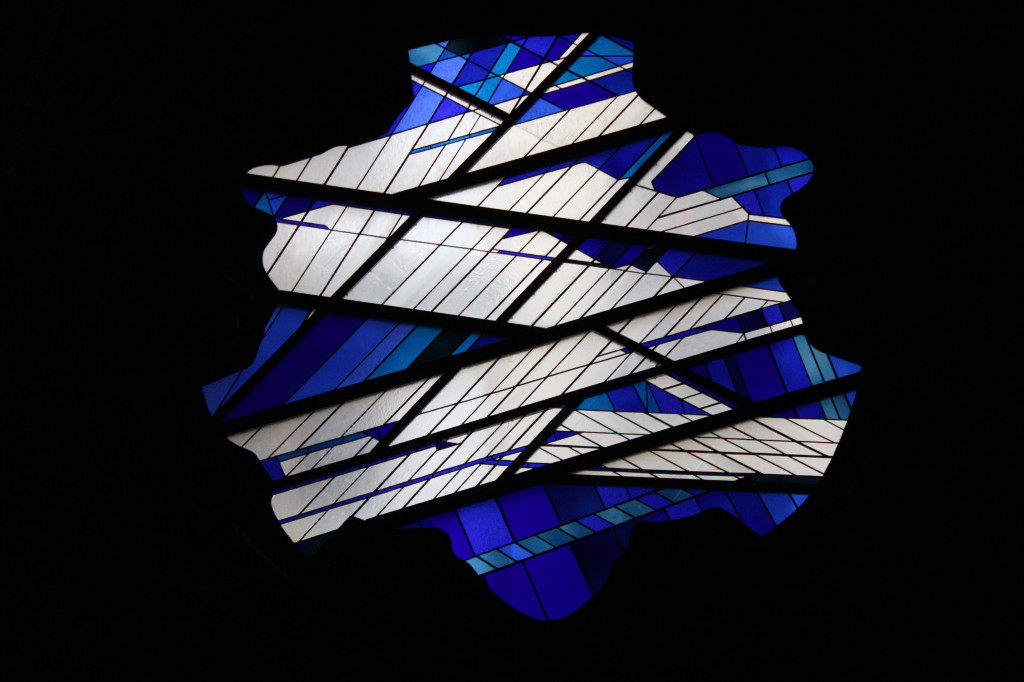
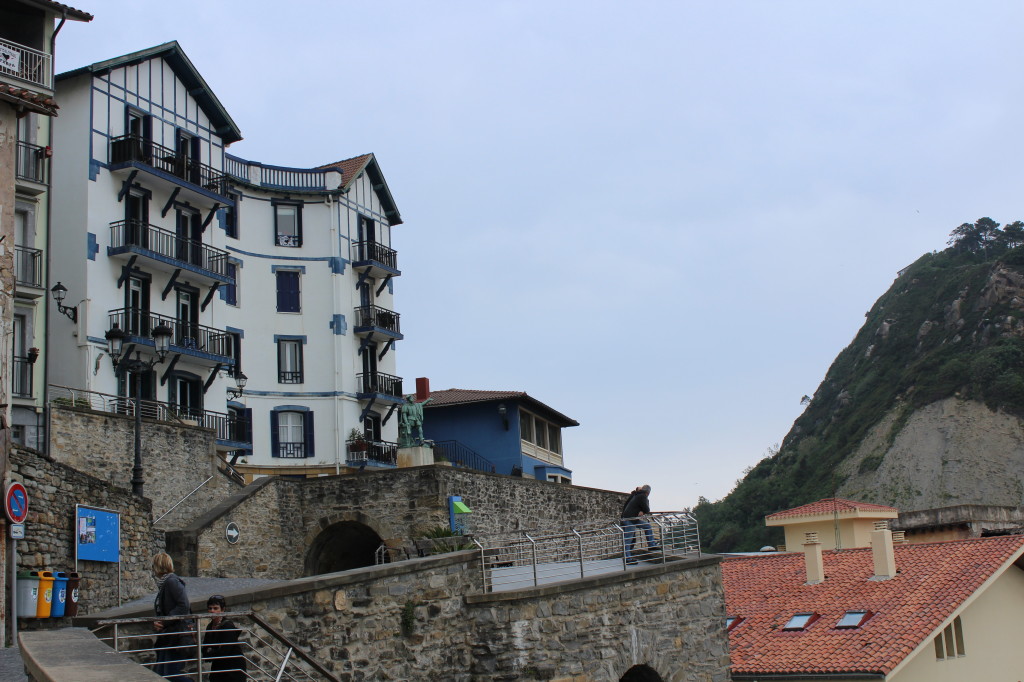
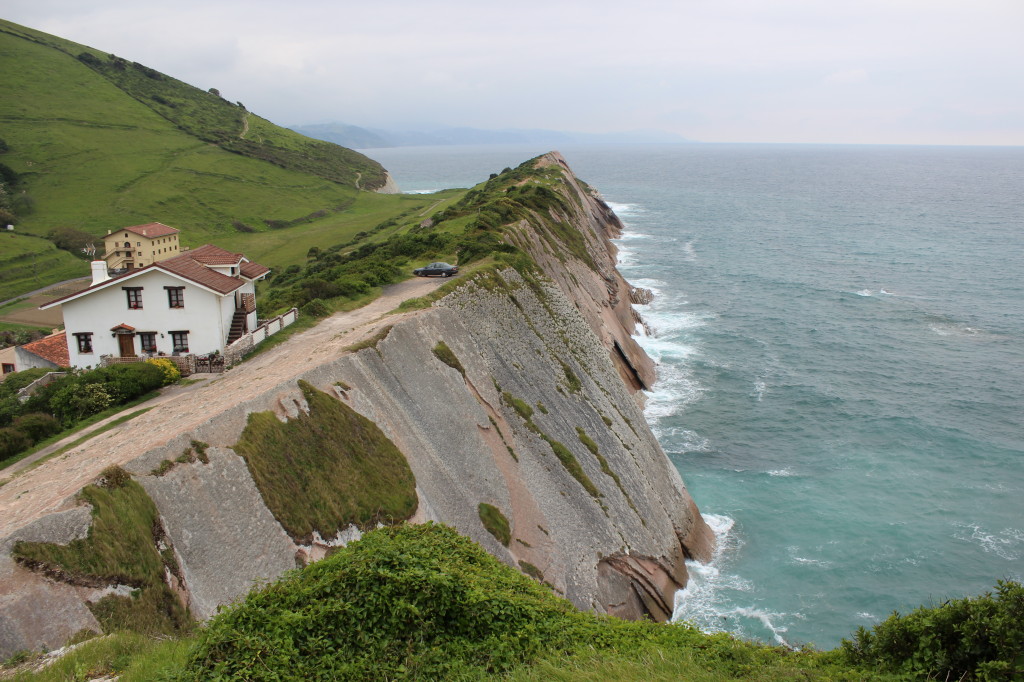
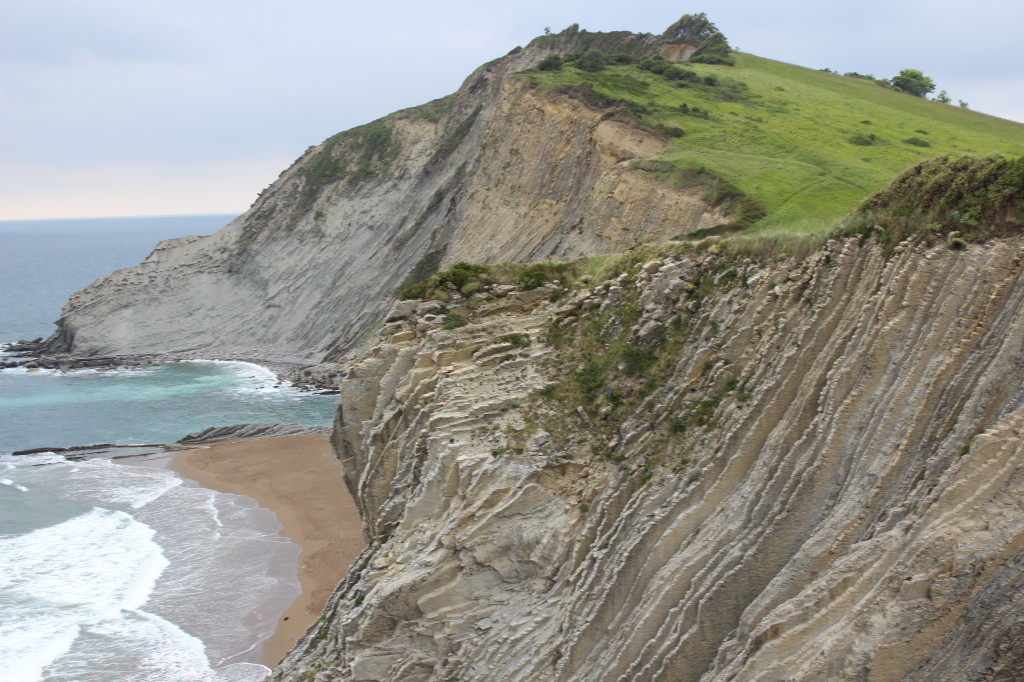
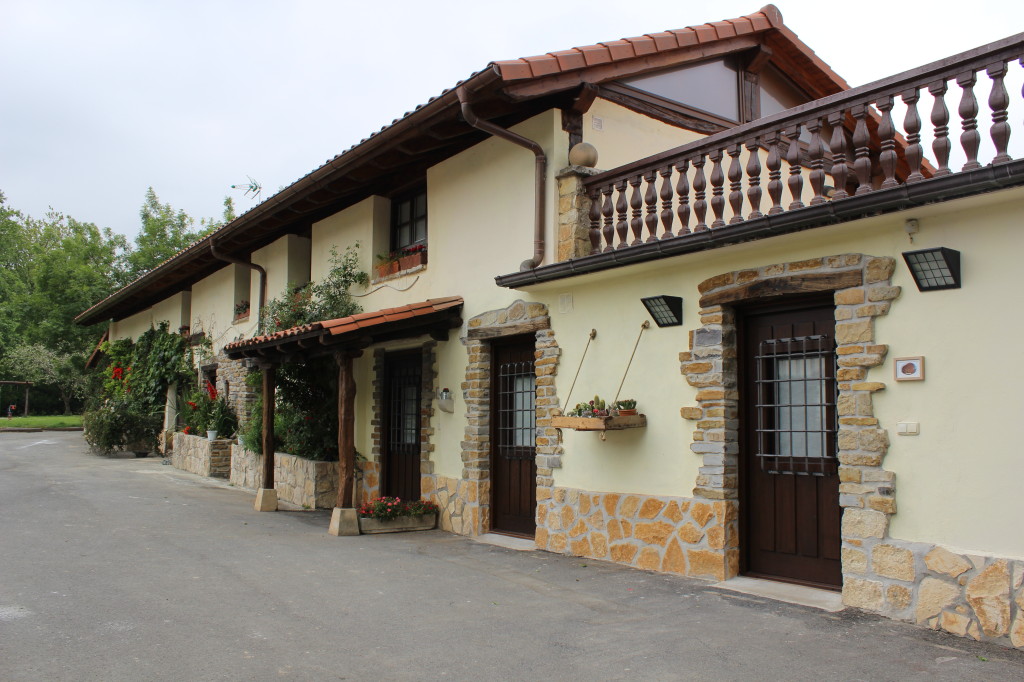
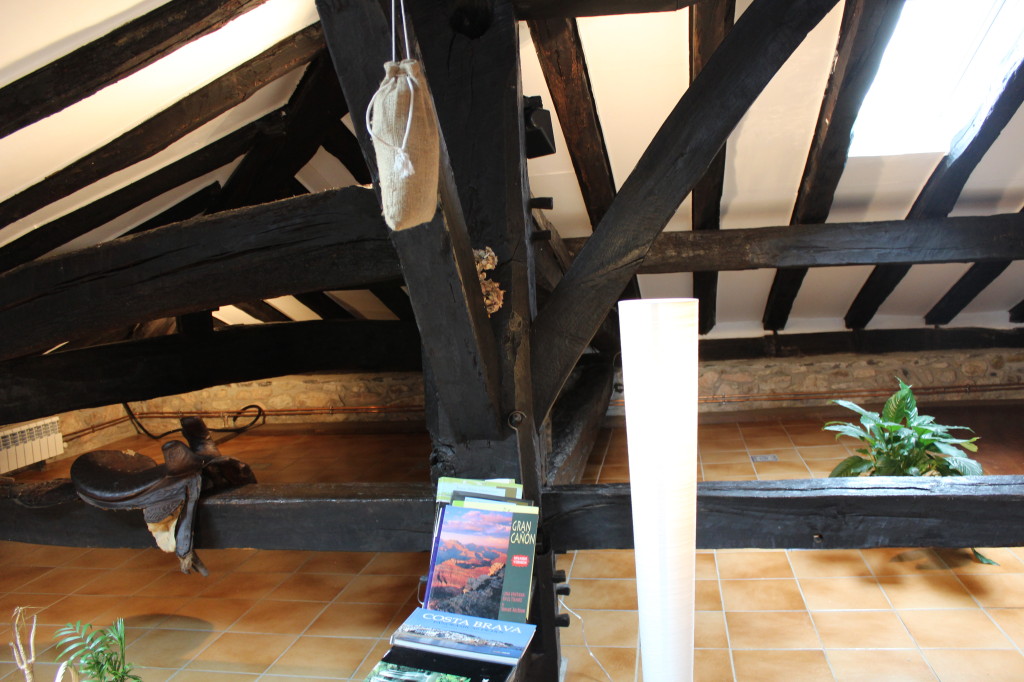
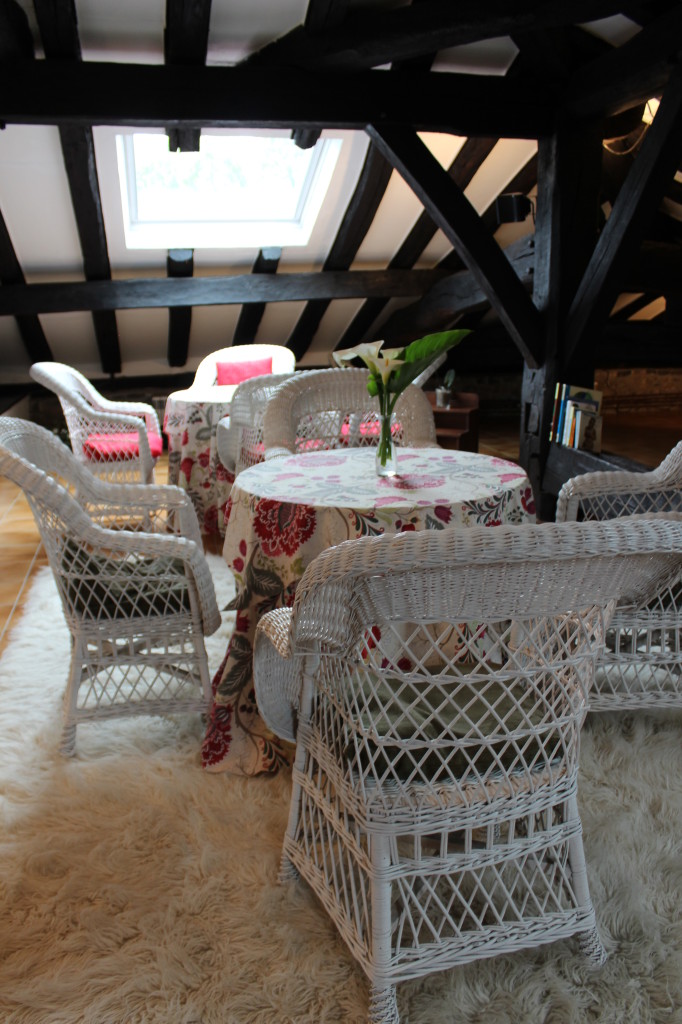
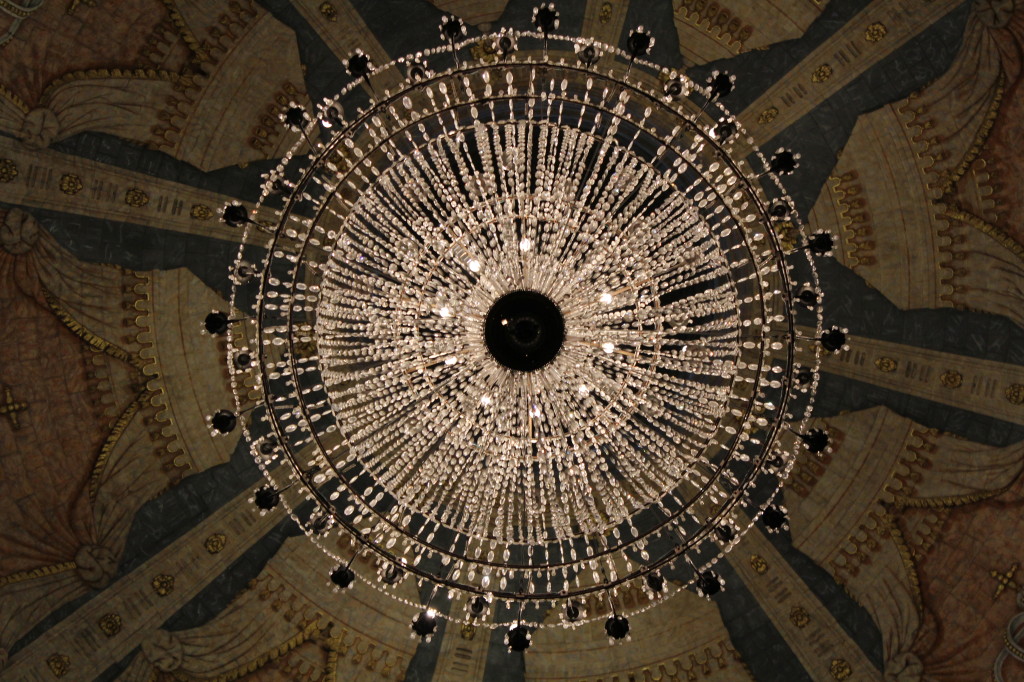
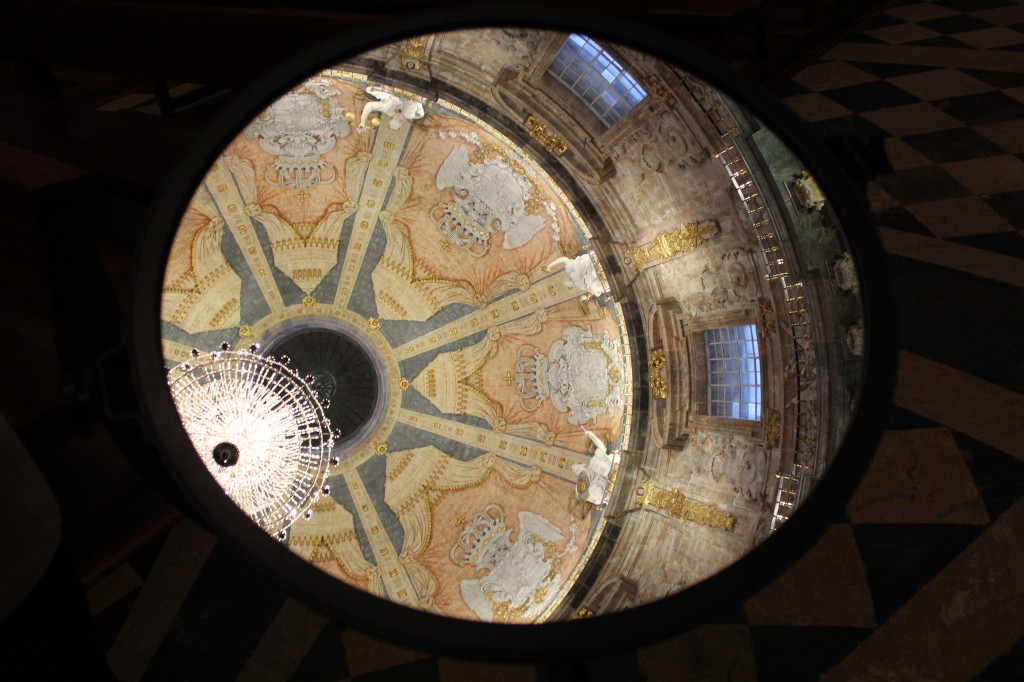
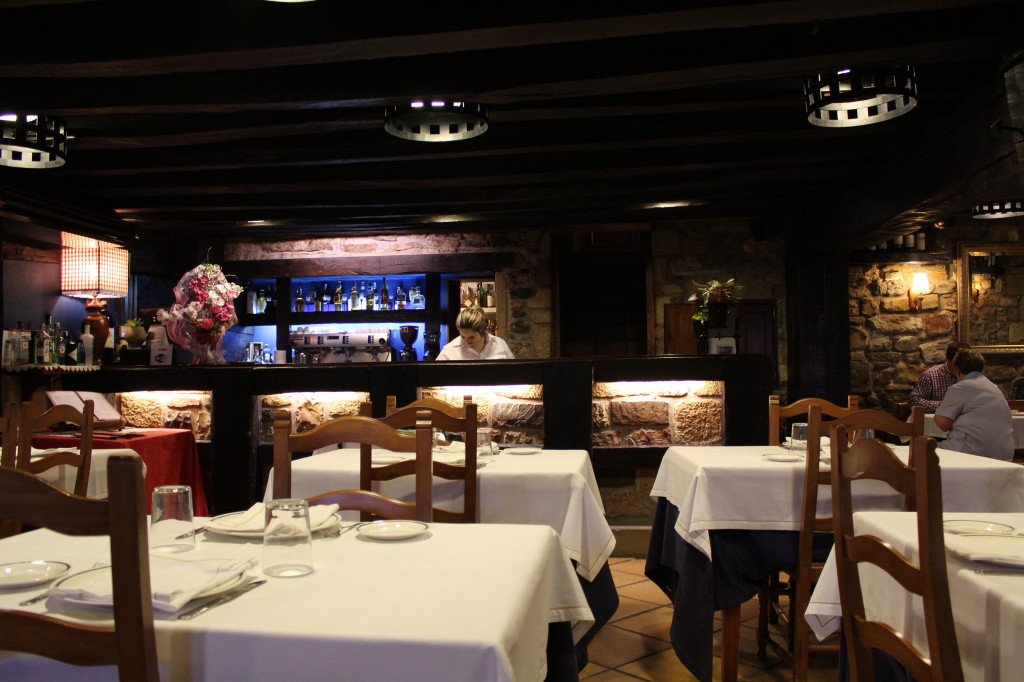
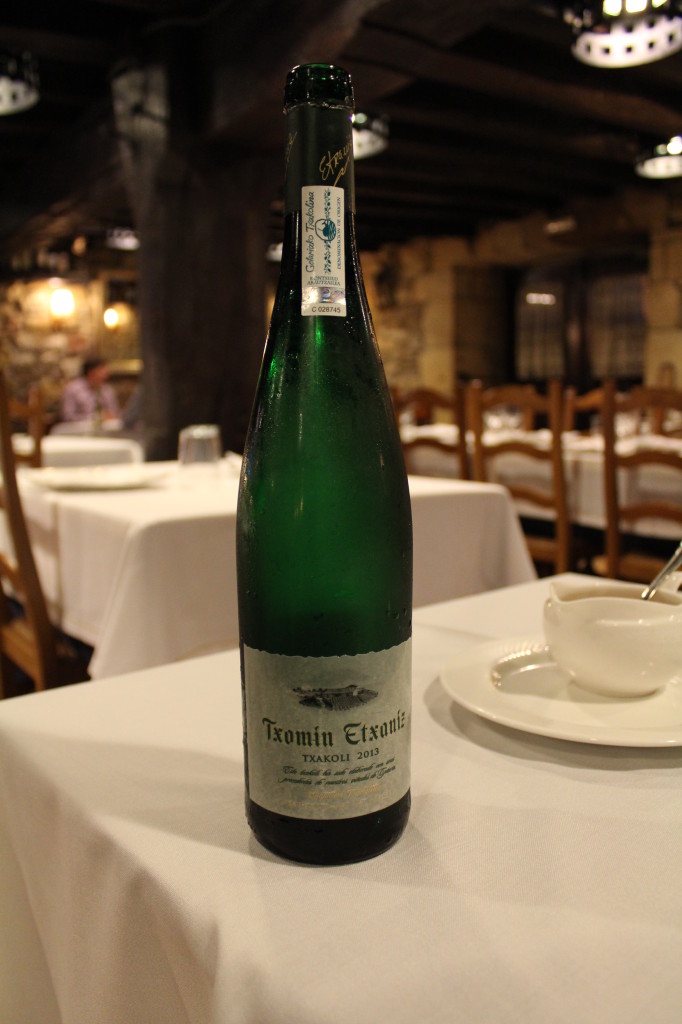
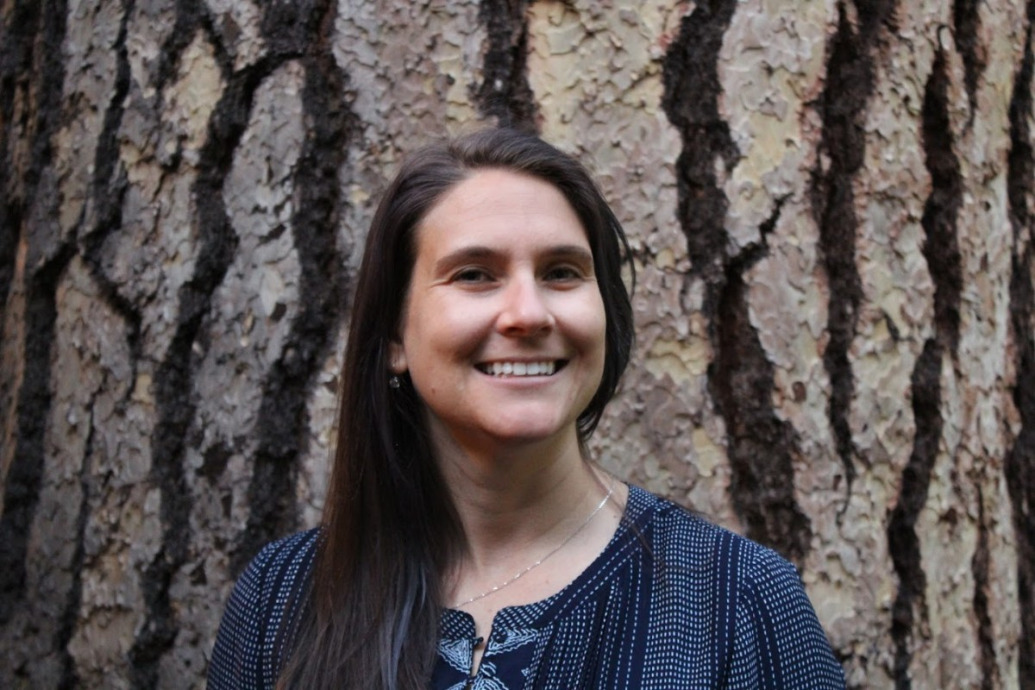
Awesome and inspiring pictures!
Looks wonderful. Definitely a beautiful region.